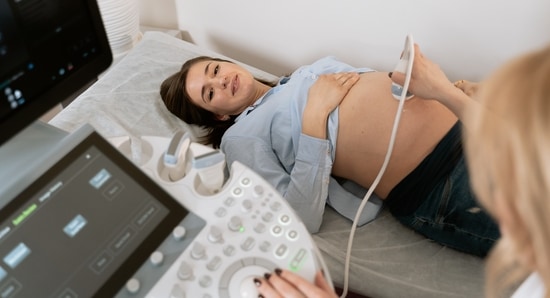Constipation in pregnancy: Causes, changes to watch out for and tips to avoid it
Between 16 and 39% of pregnant women have constipation during any of the three trimesters, up to three months following the birth of the child or in the third trimester since the foetus is at its heaviest. Here are its causes, changes to watch out for and tips to avoid it
Some of the most typical concerns during pregnancy are gastrointestinal (GI) problems where some women may start having gastrointestinal problems after giving birth and these gastrointestinal issues can impact the liver, gallbladder, pancreas and other digestive organs in addition to the digestive tract, which includes the oesophagus, stomach, small intestine, large intestine and rectum. Some women may already have GI conditions that might deteriorate during pregnancy and need specific attention.

Between 16 and 39% of pregnant women have constipation at some time. The third trimester is when you're most likely to get constipation since the foetus is at its heaviest and is exerting the most strain on your gut however, constipation can occur during any of the three trimesters or you may experience constipation for up to three months following the birth of the child.
Causes:
In an interview with HT Lifestyle, Dr Anu Vij, Consultant Obstetrician and Gynaecologist at Medicover Hospitals in Navi Mumbai, revealed, “In the first trimester the causes are usually high progesterone levels, low liquid intake due to nausea and vomiting and low food intake.”
Changes to watch out for during your 2nd and 3rd trimester:
Dr Anu Vij shared, “Throughout the second trimester of pregnancy, your developing foetus experiences several important changes. You can start feeling the kicks and movements of the fetus. Your morning sickness starts to subside. Your body is rapidly changing as your baby grows. Digestion-related problems including constipation, gas, and heartburn may be among these alterations. To obtain relief from these typical symptoms and resume enjoying your pregnancy, learn more about them.”
Avoiding constipation problems during pregnancy:
Dr Anu Vij highlighted that your increased iron consumption during pregnancy may potentially be a factor in your constipation. To lessen pregnancy-related constipation symptoms, she suggested:
• 10 8-oz glasses of water should be consumed daily.
• Increase your dietary fibre intake gradually. Eat meals to reach your daily fibre goal of 28 g.
• Beans provide between 3 and 6 grammes of fibre per serving. Each serving of garbanzo beans has 6 g of fibre.
• vegetables that provide 2 to 4 grammes of fibre per serving, such as potatoes, sweet potatoes, broccoli, and carrots.
• fruits with 2 to 4 grammes of sugar per serving, such as pears, figs, strawberries, apples, bananas, and oranges
• Using whole grains that provide 1 to 3 g of fibre per serving, such as brown rice, pasta and bread.
• Cereals and oatmeal that contain 3 to 8 grammes of fibre per serving (10% bran provides 8 grammes).
• To energise your digestive system and encourage typical bowel movements, engage in at least 30 minutes of exercise each day.
"The lower GI tract is affected by pregnancy hormones, which effectively slow the passage of faeces through the intestines. More water is absorbed into the stools as a result of the slow-motion process, making them difficult to pass. Constipation can also be caused by taking certain prenatal vitamins and taking iron supplements. Haemorrhoids are more likely to develop later in pregnancy as a result of pressure from the expanding uterus, which can also make it more difficult to pass stools, Dr Anu Vij explained.
She elaborated, “Constipation may be lessened and prevented by increasing fluid intake and consuming more fibre in the diet. Additionally safe to use, some iron supplements actually contain stool softeners. A moderate laxative could be required for more severe constipation. If you develop stomach discomfort, bloody stools, or uncomfortable haemorrhoids, talk to your doctor about further therapies.”

Catch your daily dose of Fashion, Taylor Swift, Health, Festivals, Travel, Relationship, Recipe and all the other Latest Lifestyle News on Hindustan Times Website and APPs.
Catch your daily dose of Fashion, Taylor Swift, Health, Festivals, Travel, Relationship, Recipe and all the other Latest Lifestyle News on Hindustan Times Website and APPs.





